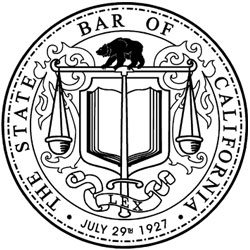Legal Issues Involving Visitation In Clark County
by Admin | Child Custody

Visitation rights are one of the most essential matters in family law, particularly when parents face custody disputes in Clark County, Nevada. When parents separate or divorce, they must navigate the legal complexities of child custody and visitation arrangements to ensure their children’s well-being. Understanding these legal issues is essential for parents, as it determines not only visitation but also child support, guardianship, and even adoption in some cases. Parents often have many questions and need advice on their options, making it vital to consult with a lawyer who can explain the legal process clearly in English.
In Clark County, Nevada, the court system is responsible for determining visitation rights based on the child’s best interests. This legal process can be challenging, especially for parents unfamiliar with the necessary paperwork, procedures, and laws surrounding child custody. Therefore, legal guidance is crucial to making informed decisions and protecting your parental rights. If you’re unsure about the process, you can also find helpful resources, including YouTube videos, that provide valuable insights into visitation rights and family law. This post will explore the key legal issues surrounding visitation, custody, and other family law matters in Clark County, Nevada.
What is Visitation?
Visitation refers to a non-custodial parent’s time with their child after a divorce or separation. The court will determine the visitation terms, considering the child’s best interests. Sometimes, parents may agree on visitation schedules without involving the court. However, if there is a dispute, the court will step in to make a ruling. Mediation is often used to help parents reach an agreement without needing a prolonged court battle. If an agreement is reached, the court may issue an order for visitation enforcement.
In Clark County, visitation rights are generally granted to both parents unless there are issues such as abuse, neglect, or substance abuse that could endanger the child. Visitation can take various forms, including unsupervised, supervised, or even no visitation, depending on the circumstances. The goal is always to protect the child’s emotional, psychological, and physical well-being. If visitation terms are not being followed, modification of the court order may be necessary, and the parent seeking a change can file a motion for enforcement. Ensuring compliance with visitation orders is crucial for maintaining access to the child and upholding the child’s best interests.
Types of Visitation
- Unsupervised Visitation: This is the most common type of visitation, where the non-custodial parent spends time with the child without supervision. The terms and visitation frequency are outlined in a court-approved parenting plan. Jurisdiction over the case rests with the family court in Clark County, and the court’s role is to ensure a fair resolution of any visitation disputes. The court may also require the parents to keep records of their visitation schedule and any interactions during visits. If either parent fails to comply with the court’s visitation order, fines or other penalties may be imposed to encourage compliance and ensure that the child’s best interests are prioritized.
- Supervised Visitation: In some cases, the court may order supervised visitation if there are concerns about the child’s safety. A third party, such as a relative or professional supervisor, will be present during the visits. This is a matter the court takes seriously, and parents involved will be given clear information on the terms and conditions of the supervised visitation. A copy of the visitation order will be provided to both parents, and a page will be included with detailed instructions. Parents may also be required to attend parenting classes to help improve their relationship with their children and ensure that future visits are safe and constructive.
- Virtual Visitation: In today’s digital age, virtual visitation may be allowed. This involves video or phone calls between the non-custodial parent and child, often used when distance or circumstances prevent in-person visits.
- No Visitation: In extreme cases where a parent’s behavior harms the child, the court may determine that visitation should not occur.
Legal Process for Visitation in Clark County
Obtaining visitation rights in Clark County typically begins with filing a petition with the court. Parents may file for visitation as part of a divorce proceeding or as a separate request if unmarried. This petition must include the desired visitation schedule and any supporting documents, such as evidence of the parent-child relationship. For non-English-speaking parents, there are resources available in multiple languages, including Romanian, Urdu, Chinese, Slovak, Slovenian, Spanish, Czech, Persian, Danish, Dutch, Bulgarian, Greek, Icelandic, Irish, Italian, Japanese, Estonian, Filipino, Finnish, French, Galician, Georgian, German, Malay, Belarusian, Basque, Azerbaijani, Armenian, Arabic, Albanian, Afrikaans, Croatian, Swahili, Swedish, Lithuanian, Serbian, Russian, Portuguese, Macedonian, Polish, Norwegian, Turkish, Yiddish, Ukrainian, and Thai. These resources ensure parents from diverse backgrounds can understand the process and access the necessary information.
Once the petition is filed, the court will set a hearing where both parents can present their case. The judge will review the evidence, consider the child’s best interests, and issue a ruling on the visitation arrangement. Sometimes, the judge may appoint a mediator to help the parents reach an agreement before the hearing.
Understanding Custody
Custody refers to a parent’s legal rights and responsibilities regarding their child’s care. In Clark County, custody can be either physical or legal:
- Physical Custody: Refers to where the child lives. If one parent has primary physical custody, the child will primarily live with that parent. The other parent will typically have visitation rights. Visitations are often arranged in ways that prioritize the child’s well-being while respecting the rights of both parties.
- Legal Custody: Refers to the right to make crucial decisions for the child, such as those related to education, health care, and religion. Parents may share legal custody, meaning both have a say in these decisions. Clear communication and understanding of the language used in custody agreements are essential to avoid disputes.
Parents sometimes use social media platforms like Instagram to document their time with their children, leading to misunderstandings between parties. The court encourages focusing on the child’s best interests rather than engaging in conflicts through such means. Custody decisions are governed by the state’s laws and aim to provide a stable environment for the child. Mediation is one service the court may recommend to help parents agree on terms and avoid prolonged legal battles.
Types of Custody
- Joint Custody: In this arrangement, both parents share physical and legal custody. The child spends significant time with both parents, and both parents have equal decision-making power. This type of custody often requires both parents to complete necessary court forms and filings to formalize the agreement. Additionally, the state may require parents to pay specific fees during the process to ensure compliance with legal procedures.
- Sole Custody: In cases where joint custody is not in the child’s best interest, one parent may be granted sole custody. The other parent may still have visitation rights. If an emergency arises, the custodial parent may need to file additional papers with the court to modify the custody arrangement temporarily.
- Split Custody: In rare cases, if there are multiple children, the court may order split custody, where each parent has primary custody of one or more children. This arrangement typically involves carefully reviewing filings and may include additional fees to process the required legal documents.
Child Support and Visitation
Child support is a separate but related issue to visitation. In Nevada, both parents are financially responsible for their child’s upbringing, even if they do not have physical custody. The court uses a standard formula to calculate child support, considering the non-custodial parent’s income, property, and other factors.
Parents must understand that child support and visitation are separate matters. Having visitation rights does not automatically mean that the parent will not be required to pay child support and vice versa. The court will address both issues separately, ensuring the child’s financial and emotional needs are met. Complaints regarding child support orders, whether from parents or third parties, are taken seriously by the court and must be formally filed for review.
Child support payments are sometimes managed by state agencies or employees assigned to enforce the orders. Elected officials often oversee policies and programs designed to improve the child support system and ensure it functions effectively to support children and families.

Filing for Child Support
If visitation rights have been established but child support is not in place, a parent can file for child support in the family court. This process allows parents to address their financial responsibilities and ensure the child’s needs are met. The court will order the non-custodial parent to pay a specified amount of support each month.
The child support order can be modified if either parent’s financial situation significantly changes. These modifications allow people to adapt to new circumstances while maintaining compliance with the law. Parents can explore resources the court provides for more details about related topics or refer to the sitemap on official websites for guidance. Families seeking assistance can contact us to learn more about how to navigate child support and visitation matters effectively.
Guardianship and Adoption in Clark County
While visitation and custody arrangements address the rights of biological parents, there are instances where non-parents may seek guardianship or adoption. These legal processes are often complex and require expert legal assistance.
Guardianship
Guardianship is a legal arrangement in which someone other than the biological parents is granted the authority to care for a child. It can happen in cases where the parents are unable to care for the child due to illness, incarceration, or other issues. Guardianship can be temporary or permanent.
In Clark County, a guardianship petition must be filed with the court, and a hearing will be scheduled. The petitioner must prove that the guardianship would serve the child’s best interests. This process often involves presenting evidence and documentation, such as the child’s living situation and the suitability of the guardian.
Adoption
Adoption is the legal process by which a non-biological parent becomes the legal parent of a child. A stepparent, relative, or other interested party can initiate this process. The court must thoroughly investigate adoption to ensure that it is in the child’s best interest.
Once the adoption is finalized, the adoptive parent gains all the legal rights and responsibilities of a biological parent, including the right to make decisions regarding the child’s care and education.
Child Custody Attorney Services
Having a skilled child custody attorney is crucial when dealing with visitation and custody issues. Attorneys specializing in family law can help navigate the legal system, ensuring that your rights as a parent are upheld. Here are some essential services provided by a child custody attorney in Las Vegas:
- Adoption Attorney: If you want to adopt a child, an adoption attorney can guide you through the legal requirements and procedures. Whether adopting a stepchild or relative or through foster care, an adoption attorney ensures your adoption process is smooth and legally sound.
- Guardianship Attorney: A guardianship attorney helps individuals seeking guardianship of a child. Guardianship may be necessary when parents cannot care for their child, and a non-parent seeks legal authority to make decisions on behalf of the child.
- Child Support Attorney: If child support is an issue in your case, a child support attorney can ensure that you meet your financial obligations or fight for the appropriate amount of support. Child support attorneys assist with filing requests, modifying existing orders, and enforcing payments.
- Las Vegas Child Custody Attorney: A child custody attorney in Las Vegas represents parents involved in custody disputes. Whether you seek primary custody, joint custody, or visitation rights, a skilled attorney can help you negotiate the best possible outcome for your child’s future.
Conclusion
Legal issues involving visitation in Clark County, Nevada, are complex and overwhelming. Whether navigating a divorce, seeking visitation rights, or dealing with custody disputes, it’s crucial to have the proper legal representation. Huggins Law Office specializes in family law matters, including visitation, custody, guardianship, adoption, and child support.
Our dedicated team of attorneys is committed to helping you navigate the legal system with compassion and professionalism. We understand parents’ challenges and are here to provide the support and guidance you need.
Huggins Law Office Services:
- Adoption Attorney: Legal guidance and support for those seeking to adopt.
- Guardianship Attorney: Assistance for non-parents seeking guardianship of a child.
- Child Support Attorney: Ensuring that child support obligations are met reasonably.
- Las Vegas Child Custody Attorney: Representation in custody and visitation disputes.
For all your family law needs, contact Huggins Law Office. Our team of experienced attorneys is here to assist you with your legal matters and help you secure the best possible outcome for your family. Visit our website to learn more and schedule a consultation today!
FAQs on Legal Issues Involving Visitation in Clark County
1. What happens if a parent violates a visitation order in Clark County?
If a parent violates a court-ordered visitation schedule, the other parent can file a motion for enforcement with the family court. The court may impose penalties, modify the visitation arrangement, or take other actions to ensure compliance.
2. Can grandparents or other relatives seek visitation rights in Clark County?
Yes, grandparents or other relatives can petition the court for visitation rights. The court will review the petition based on the child’s best interests and the relationship between the child and the petitioner.
3. What factors does the court consider when determining the child’s best interests?
The court evaluates factors such as the child’s emotional and physical needs, the parent’s ability to provide a stable environment, the relationship between the child and each parent, and any history of abuse or neglect.
4. How can parents resolve disputes over visitation schedules without going to court?
Parents can resolve visitation disputes through mediation, a process where a neutral third party helps both sides reach an agreement. Mediation is often faster, less costly, and less adversarial than a court battle.
5. What is the difference between legal and physical custody in Nevada?
Legal custody involves the right to decide about the child’s welfare, including education, healthcare, and religion. Physical custody refers to where the child lives and the day-to-day care provided by the custodial parent.
6. Can a parent request to modify a visitation order in Clark County?
Yes, a parent can request to modify a visitation order by filing a motion with the court. They must demonstrate a significant change in circumstances that justifies the modification.
7. What role do parenting plans play in visitation cases?
Parenting plans outline the visitation schedule, decision-making responsibilities, and other arrangements. The court reviews and approves these plans to ensure they serve the child’s best interests.
8. Is it possible to have virtual visitation if parents live far apart?
The court may approve virtual visitation using video calls or other digital communication methods to maintain a relationship between the non-custodial parent and the child.
9. How does the court handle visitation in cases involving domestic violence?
In cases involving domestic violence, the court may order supervised visitation to protect the child. The abusive parent’s access may also be restricted or denied, depending on the severity of the situation.
10. What legal resources are available for non-English-speaking parents in Clark County?
Clark County provides multilingual legal resources, including translated documents and interpreters, to help non-English-speaking parents understand and navigate the family court process.




